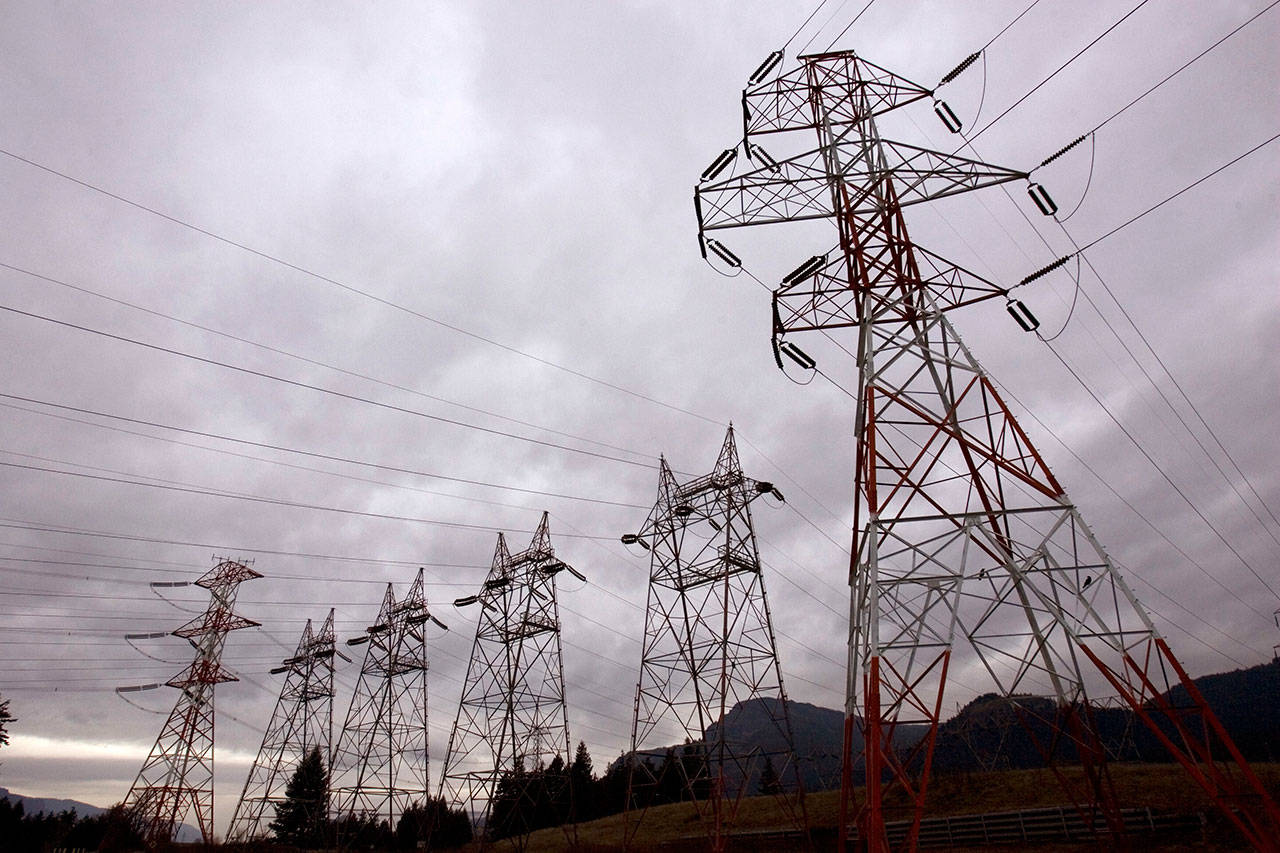By The Herald Editorial Board
With every payment over the years, customers of the Snohomish Public Utility District have helped build and maintain the electrical grid that the Northwest depends upon to supply electricity to homes, schools, hospitals, businesses and industries.
Of the electricity that the Snohomish PUD supplies to its customers, 80 percent of it is generated at Bonneville Power Administration dams — and one nuclear power plant — and is sent over a high-voltage transmission system that covers 300,000 square miles in the Northwest by way of more than 15,000 miles of power lines and nearly 300 substations. The BPA manages about 75 percent of the high-voltage lines in the Northwest, serving 12.5 million residents in Washington, Oregon, Idaho and parts of Montana.
The Trump administration in its recent budget proposal to Congress has targeted for cuts or elimination a number of successful Energy Department programs that fund research into technology, such as better batteries for electric vehicles; encourage energy conservation, such as Energy Star; and offer assistance programs to help weatherize homes and help low-income families and seniors pay their power bills. But the president also has floated a proposal to auction off the BPA’s transmission system for a one-time infusion of $4.9 billion into the federal treasury between 2018 to 2027, as reported recently by The Oregonian and the Tri-City Herald.
The Bonneville Power Administration, an agency of the federal Department of Energy, was created by Congress in 1937, following construction of the Grand Coulee and Bonneville hydroelectric dams on the Columbia River. It’s now responsible for 31 federally managed dams and a power-generating reactor at Hanford.
Snohomish PUD is one of about 150 public and private utilities that purchase electricity from BPA for their customers. As a self-financing agency, the rates paid to BPA completely fund its costs, including debt payments on federal loans. Among BPA programs funded by ratepayers are programs that help to sustain salmon runs and encourage energy efficiency.
The proposal to privatize the BPA’s transmission system has been made before, and has been successfully beaten back each time by the Northwest’s Congressional delegation, a few of whom have already repeated their opposition to the proposal.
“Selling government-owned transmission lines to the highest bidder will just have the effect of jacking up power rates, and no one in that region is going to be in favor of this,” Sen. Maria Cantwell, D-Washington, ranking member of the Senate Committee on Energy and National Resources, told The New York Times last week.
Sen. Ron Wyden, D-Oregon, noted the investment that ratepayers have made over decades to help build and maintain the system. “Public power customers in the Pacific Northwest have paid for the system and their investment should not be put up for sale,” Wyden said in a release.
Privatization of the transmission lines is a threat not just to homeowners but to Northwest industries and other employers, including the state’s sole operating aluminum smelter in Ferndale.
Alcoa’s Intalco Works in Ferndale was facing a shutdown in 2015, but Alcoa struck a deal with the BPA in May 2016 that will keep the smelter running at least through February of next year. While Alcoa has closed its Wenatchee smelter, it is working with the Chelan County PUD to keep open the possibility that that plant might reopen at a later date.
Electricity that is affordable and predictably priced has made Washington and other Northwest states attractive to Boeing and other industries and to Microsoft and technology companies that have based their data server farms in Eastern Washington.
If the BPA’s transmission system is privatized, residential, business and industrial customers can count on paying more for electricity as the focus shifts from serving ratepayers to maximizing profits and keeping shareholders happy.
There’s nothing to be gained for Washington state and Northwest residents by selling off the BPA’s power lines.
In return for a brief infusion of cash to pay for Trump’s tax cuts, we all get higher electric bills.
Talk to us
> Give us your news tips.
> Send us a letter to the editor.
> More Herald contact information.

























